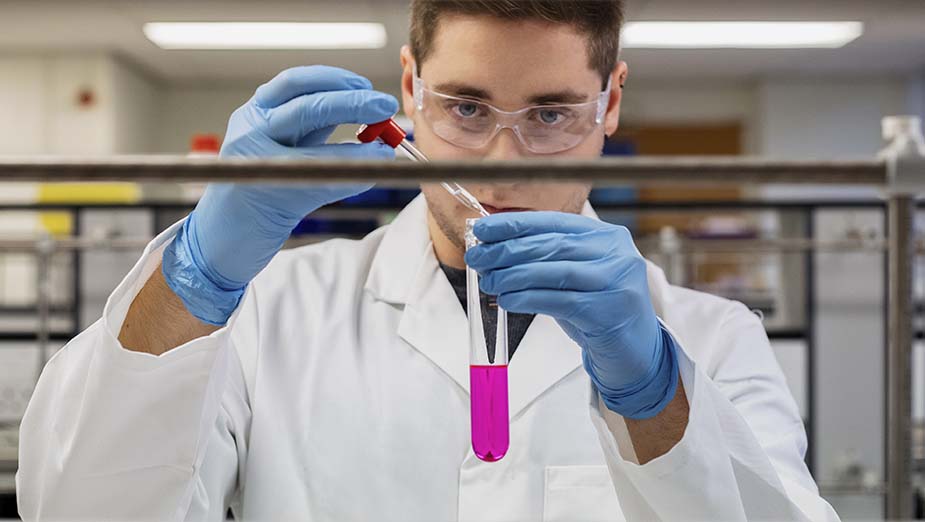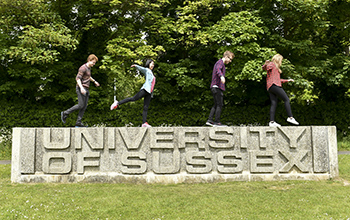Key information
Duration
4 years full time
Typical A-level offer
AAB-ABB
UCAS code
F102
Start date
September 2027
Location
Why choose this course at Sussex?
- Develop expertise for scientific and non-scientific career paths, including medical chemistry, drug discovery and scientific research.
- Benefit from our history of teaching and research excellence – from Nobel Prize winners to links with the Sussex Drug Discovery Centre.
- Specialise your research skills in an integrated Masters year, and gain hands-on lab and industry experience with a placement.
New medicines, new materials, new sources of energy – they can all change lives. And they’re all down to chemistry. The more we understand, the more we’ll be able to make our world a better, more sustainable place to live in.
At Sussex, we have a long history of excellence in both our teaching and research – from Nobel Prize winners to our strong links with the Sussex Drug Discovery Centre. You’ll learn from leading chemists whose world-changing research influences their teaching. You’ll join a friendly and supportive community of students and scientists in the School of Life Sciences.
From Year 1, you’ll get hands-on practical experience in the lab. By Year 3, you’ll have the opportunity to collect and analyse data from our many facilities. These including Mass Spectrometry and NMR spectroscopy. On your course, you’ll:
- study physical, organic and inorganic chemistry
- undertake experimental chemistry and chemical analysis
- develop skills in data acquisition and processing, programming, teamwork and time management.
When you graduate, you’re prepared for a variety of careers such as:
- medicinal chemist
- materials or environmental scientist
- technology consultant
- research and development chemist.
You could work for leading companies including GlaxoSmithKline, Deloitte or Johnson Matthey. You could also consider jobs in the NHS, science publishing or education. And with your data-handling and analytical skills, you could also develop a career outside of science.
In addition, the optional year in industry is a great opportunity for you to gain real-world experience of working in the chemistry sector. And in your integrated Masters year, you’ll develop advanced research skills by working alongside our chemists. All this prepares you for a future in scientific research or a variety of other careers.
- =4th in the UK for graduate prospects (on track) in Chemistry (Complete University Guide 2026)
- 8th in the UK for the impact of our research outputs in Chemistry in REF 2021 (Times Higher Education)
- Top 5 in the UK for Chemistry (Guardian University Guide 2026)
Accreditation
- Accredited by the Royal Society of Chemistry for fully meeting the academic criteria for Chartered Chemist (CChem). Find out more
Your optional placement
To help you gain experience and increase your employability, you can apply for an optional placement as part of your course. This can be a fantastic opportunity to gain real-life insight into industry as well as skills valued by employers. You’ll be responsible for applying for and securing your placement. Our dedicated careers team can help you:
- find an employer
- draft an application
- prepare for interviews.
Don’t worry if you’re not successful, you’ll simply transfer to a non-placement version of your course.
MChem or BSc?
We also offer this course without the industrial placement year, with summer research placements, or as a three-year BSc. Find out about the benefits of an integrated Masters year.
For me, it’s vital that everyone – no matter who they are or where they come from – has access to the same opportunities that I’ve been lucky enough to enjoy. Sussex is where it all started for me. What an amazing launchpad.”Professor Tom Welton OBE
President of the Royal Society of Chemistry 2020-2022
Read Tom’s story
Undergraduate Visit Days
Learn more about your chosen course, explore our distinctive campus, and meet our staff and students.
Book a Visit Day
On campus - in person
You’ll study for this degree on our campus, joining our academics and fellow students. Combined with in-person contact time, digitally supported educational resources, library collections and independent study, this course is designed to give you an inclusive education. Your learning experience may also include work placements, field trips, studying abroad and internationalisation experiences.
Find out about our beautiful campus
Take our virtual tour
Be inspired by our beautiful campus and buzzing Brighton in this immersive 360° experience.
Begin your tour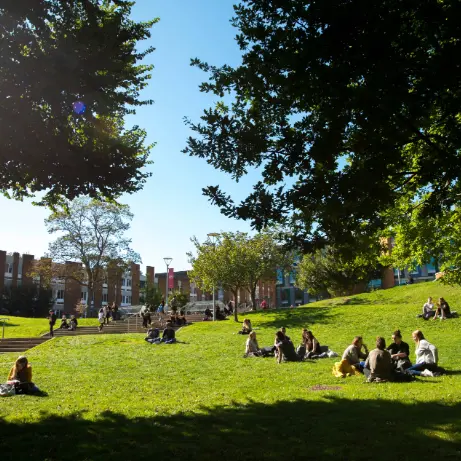
As a founding partner of ResearchPlus, a collaboration of research-focused universities, we engage with government, industry and civil society to support economic growth, prosperity and wellbeing across the whole of the UK.
Find out more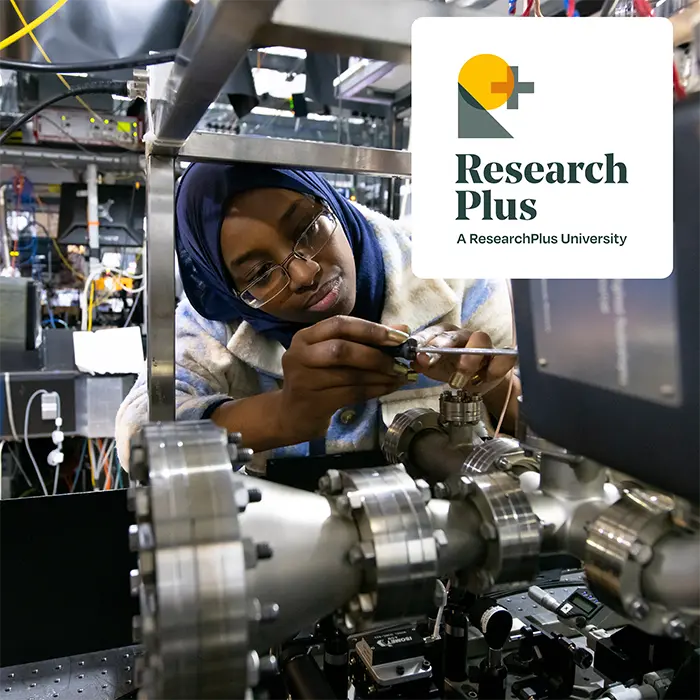
Modules
This is a single-honours course, allowing you to focus in depth on your core subject. Find out more from our guide to undergraduate study
-
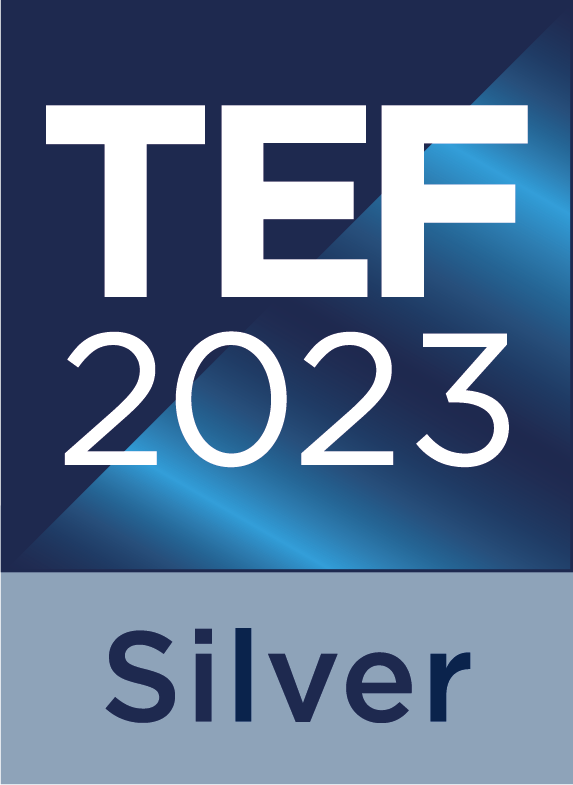 Silver
The student experience and student outcomes are typically very high quality.
Silver
The student experience and student outcomes are typically very high quality.
This rating was awarded in 2023, for four years. (Teaching Excellence Framework 2023)
Find out more about our approach to teaching and supporting you to thrive
-
Year 1 at Sussex
Core modules
Core modules are taken by all students on the course. They give you a solid grounding in your chosen subject and prepare you to explore the topics that interest you most.
Autumn teaching
Spring teaching
-
Year 2 at Sussex
Core modules
Core modules are taken by all students on the course. They give you a solid grounding in your chosen subject and prepare you to explore the topics that interest you most.
Autumn teaching
- Core Laboratory Skills for Chemists 1
- Researching and Communicating Chemistry
- Structure Determination in Organic and Inorganic Chemistry
- Symmetry, Bonding and Molecular Spectroscopy
Spring teaching
-
Placement
Placement (optional)
You can apply to spend up to one year away from the University on an industrial placement, normally either in the UK or Europe.
During this year you take two distance-learning modules, supported by regular contact with a designated tutor.
Recent Chemistry students have gone on placements at:
- Pfizer
- AkzoNobel
- GSK.
Find out more about placements and internships
Core modules
Core modules are taken by all students on the course. They give you a solid grounding in your chosen subject and prepare you to explore the topics that interest you most.
Autumn and spring teaching
Options
Alongside your core modules, you can choose options to broaden your horizons and tailor your course to your interests. This list gives you a flavour of our options, which are kept under review and may change, for example in response to student feedback or the latest research.
While it’s our aim for students to take their preferred combinations of options, this can’t be guaranteed and will be subject to timetabling. Options may be grouped and if so, students will be able to choose a set number of options from the selection available in any particular group.
Autumn teaching
- Drug Discovery & Chemical Enterprise
- Green Chemistry and Organic Synthesis
- Reactivity in Inorganic Chemistry
Spring teaching
- Astrochemistry and Planetary Atmospheres
- Bio-organic Chemistry
- Catalysis in Chemistry
- Chemistry of Functional Materials
We regularly review our modules to incorporate student feedback, staff expertise, as well as the latest research and teaching methodology. We’re planning to run these modules in the academic year 2026/27. However, there may be changes to these modules in response to feedback, staff availability, student demand or updates to our curriculum. We’ll make sure to let you know of any material changes to modules at the earliest opportunity.
We’ll do our best to provide as much optional choice as we can, but timetabling constraints mean it may not be possible to take some module combinations. The structure of a small number of courses means that the order of modules or the streams you choose may determine whether modules are core or optional. This means that your core modules or options may differ from what’s shown here.
Check back in January 2027 for more details of the modules running in the academic year 2027/28.
Our careers team offers dedicated support to help you obtain a placement, including:
- finding an employer
- drafting an application
- preparing for interviews
- ongoing help throughout a placement.
Don’t worry if you’re not successful in securing a placement, you’ll simply transfer to a non-placement version of your course.
My colleagues have helped me work out what I want to do for a job, deciding that I want to work in a research environment similar to where I did my placement.”Ben Fry
Chemistry (with an industrial placement year) MChem
AkzoNobelPlease note that if you’re receiving – or applying for – USA federal Direct Loan funds, you can’t undertake your placement in the USA if the number of credits for the placement/internship exceeds 25% of the total credits for your course. Find out more about American Student Loans and Federal Student Aid
-
Year 3 at Sussex
Core modules
Core modules are taken by all students on the course. They give you a solid grounding in your chosen subject and prepare you to explore the topics that interest you most.
Autumn and spring teaching
Options
Alongside your core modules, you can choose options to broaden your horizons and tailor your course to your interests. This list gives you a flavour of our options, which are kept under review and may change, for example in response to student feedback or the latest research.
While it’s our aim for students to take their preferred combinations of options, this can’t be guaranteed and will be subject to timetabling. Options may be grouped and if so, students will be able to choose a set number of options from the selection available in any particular group.
Autumn teaching
- Chemical Nanoscience and Surfaces
- Chemistry of Stable, Unstable and Non-existent Compounds
- Supramolecular Chemistry
Spring teaching
Spirit of Sussex Award
Feel involved in life at the University, make friends and enrich your experience with us – the Spirit of Sussex Award is our way of recognising your extracurricular and voluntary achievements.
-
Video transcript
Hi everyone! As I'm sure you've all heard by now, the Spirit of Sussex Award is now live.
Students across the Sussex community are already earning their points
What will you do to earn yours?
There's so many ways to get involved.
Head over to the website to start your Spirit of Sussex journey.
Text: The Spirit of Sussex Award is an exciting new programme designed to recognise and celebrate the things you do outside your course.
Participating in the Award makes it easy and fun for you to get involved and make the most of university life.
We regularly review our modules to incorporate student feedback, staff expertise, as well as the latest research and teaching methodology. We’re planning to run these modules in the academic year 2026/27. However, there may be changes to these modules in response to feedback, staff availability, student demand or updates to our curriculum. We’ll make sure to let you know of any material changes to modules at the earliest opportunity.
We’ll do our best to provide as much optional choice as we can, but timetabling constraints mean it may not be possible to take some module combinations. The structure of a small number of courses means that the order of modules or the streams you choose may determine whether modules are core or optional. This means that your core modules or options may differ from what’s shown here.
Check back in January 2027 for more details of the modules running in the academic year 2027/28.
- Video transcript
[Music starts – light pop – no vocals]
On screen text
Want to help shape a better world through science?
Want to tackle real world problems?
And create world-changing impact?
It all starts at the University of Sussex.
Our research focussed courses span the whole of Life Sciences:
Chemistry
Biochemistry
Neuroscience
Biology
Zoology
Ecology and Conservation
Biomedical Science
Genetics
Using the latest in cutting-edge advances.
Guided by world-leading experts.
Gain hands-on experience, in both our teaching labs and out in the field.
Influence important policies on things such as the pesticides that kill our wildlife, and policies that protect endangered species.
Work towards unlocking the secrets of the brain and ending the despair of cancer and Alzheimer’s.
Join a community of leading scientists and like-minded students striving to make the world a better place for all.
And follow in the footsteps of our 3 Nobel-prize winning alumni.
We’re here today, to train the scientists of tomorrow.
And you could be one of them.
Find out more about the School of Life Sciences at sussex.ac.uk
[Music ends]
Our experts
Prof Hazel Cox
Professor of Theoretical and Computational Quantum Chemistry
Prof John Spencer
Professor of Bioorganic Chemistry/Director of Sussex Drug Discovery Centre
Careers
- 86% of Sussex undergraduates have completed work experience by the end of their course (University of Sussex Career Readiness data at point of graduation 2023/24)
Transferable skills such as time management, communication and analytical skills are embedded in the modules throughout your course. As a graduate, you can go on to PhD study and research careers in organic, inorganic, physical or computational chemistry. You can also pursue careers in a range of fields such as:
- medicinal chemistry
- drug discovery and chemical industries
- management consultancy and marketing.
Embedded employability
This course is designed to meet the latest demands of the working world. It’s informed by our Employer Advisory Panel of key organisations hiring our graduates.
Throughout your studies, you’ll develop research skills and professional competencies. Sessions with our Careers and Entrepreneurship Team will help you bolster your CV, train for interviews and map out career trajectories.
Where do our graduates work now?
Surveyed 15 months after finishing their courses, our recent Chemistry graduates worked for employers including:
- 2BScientific
- Apple TV
- Capgemini
- Cawood
- DEKRA
- PwC
- Proveca
- Southern Water
- Sussex Police
- Ministry of Defence.
(Graduate Outcomes Survey 2017-2022)
What to do with a Chemistry degree
Explore the careers you might be interested in after studying for a degree in Chemistry
Working while you study
Our Careers and Entrepreneurship team can help you find part-time work while you study. Find out more about career development and part-time work
I had great opportunities to gain practical experience – a paid summer placement at the Sussex Drug Discovery Centre and a placement in the Medicinal Chemistry labs at the pharmaceutical company Novartis.”Hester Beard
Chemistry MChem graduate
Postdoctoral Researcher, Katholieke Universiteit Leuven, Belgium
Design your future at Sussex
Taking the next step in your career can feel daunting, but we’ll help you to explore, connect and flourish throughout your studies and beyond.
As a Sussex student, you’ll learn how to tackle real-world challenges and have access to tailored programmes of careers support:
- our Career Lab helps you to explore your options, build key skills and connect with employers. Take part in internships, community consultancy projects and insight visits, where you can learn about life at organisations including Brighton & Hove Albion Football Club, Gatwick Airport and the Knepp Rewilding Project
- one-to-one appointments with your Faculty Careers Consultant can enable you to identify your career goals, write an effective CV and prepare for future interviews
- entrepreneurship initiatives like StartUp Sussex and Ideas Lab can empower you to turn your concepts into reality.
Explore how our Careers and Entrepreneurship team can support you
-
 Winner
Entrepreneurship Catalyst Award
National Enterprise Educator Awards 2024
Winner
Entrepreneurship Catalyst Award
National Enterprise Educator Awards 2024
-
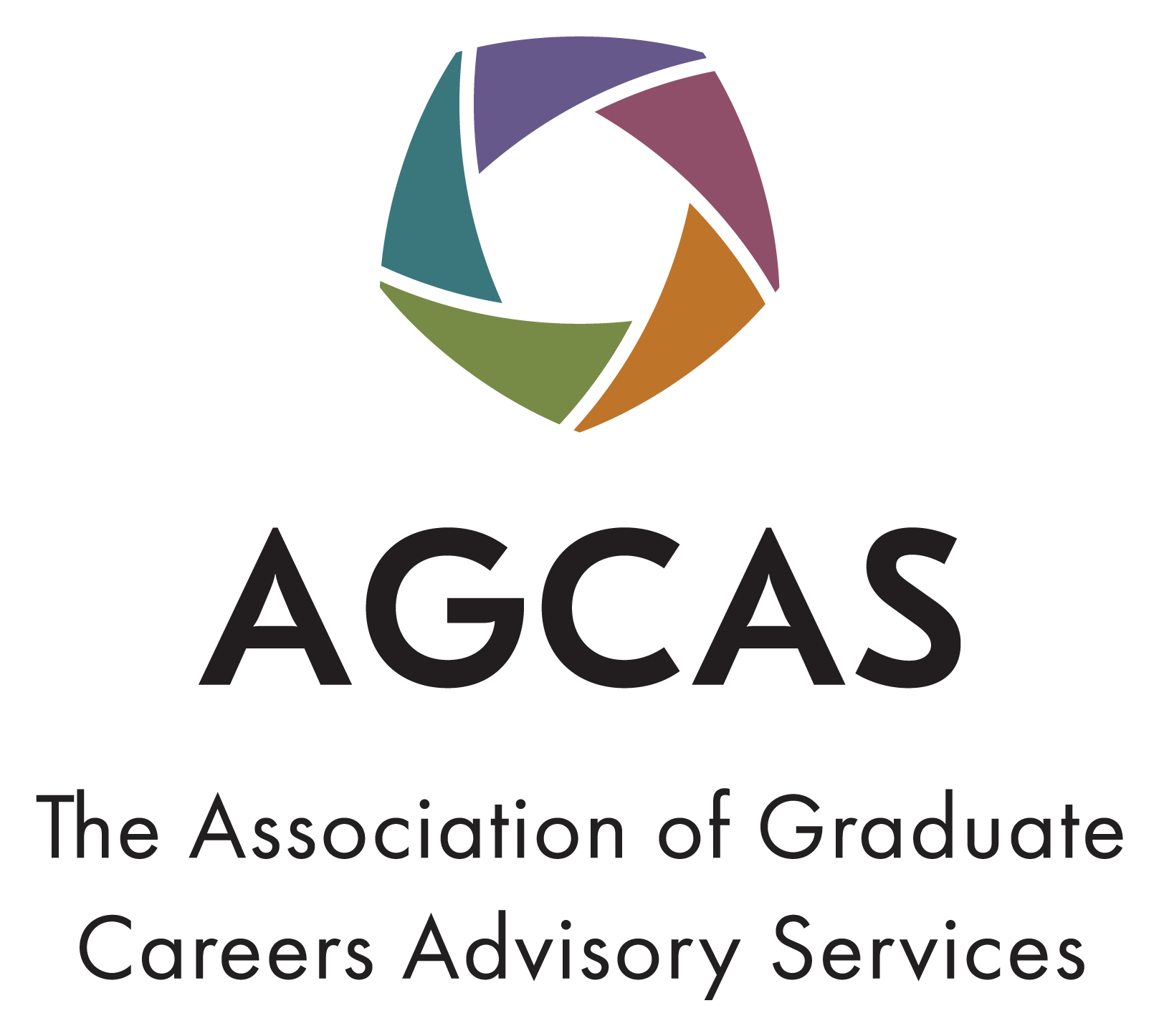 Winner
Supporting Student and Graduate Employability Award
AGCAS Awards for Excellence 2024
Winner
Supporting Student and Graduate Employability Award
AGCAS Awards for Excellence 2024
-
 Top 50
Best Universities for Work Experience in the UK
2025 Higherin Awards
Top 50
Best Universities for Work Experience in the UK
2025 Higherin Awards
Entry requirements
A-level
| Typical offer | AAB-ABB |
|---|---|
| Contextual offer | View contextual offer Not everyone has the same support to get to higher education – we help you reach your potential. When we receive applications through UCAS, we consider all factors and will sometimes make contextual offers as part of our Access and Participation Plan |
| Subjects | A-levels must include Chemistry at grade B. You will also need to pass the separate science practical assessment. If you are not able to take the science practical assessment, applications will be considered on a case-by-case basis. |
| GCSEs | You will normally need GCSE (or equivalent) Mathematics and two Science subjects with grade 5 in each (or grade B). |
| Extended Project Qualification | We take the EPQ into account when considering your application and it can be useful in the summer when your results are released if you have narrowly missed the conditions of your offer. We do not routinely include the EPQ in the conditions of your offer but we sometimes offer alternative conditions that include the EPQ. If you wish to discuss this further please contact us |
Additional UK qualifications
Access to HE Diploma
| Typical offer | Pass Diploma with at least 39 level 3 credits at Merit or above including 27 credits at Distinction |
|---|---|
| Subjects | You will need substantial amounts of Level 3 credits in Chemistry or will need to have taken A-level Chemistry in addition to the Access to HE Diploma. |
| GCSEs | You will normally need GCSE (or equivalent) Mathematics and two Science subjects with grade 5 in each (or grade B). |
Cambridge Pre-U Principal Subjects (including A-level mixes)
| Typical offer | M1, M1 and M2 in the Pre-U If you have one A-level and two Cambridge Pre-U Principle Subjects, we would expect you to have a grade A in the A-level and M1 and M2 in the two Pre-Us. If you have two A-levels and Cambridge Pre-U Principle Subjects, we would normally expect you to have grades AB in the two A-levels and M2 in the Pre-U. |
|---|---|
| Subjects | A-levels or Cambridge Pre-U Principal subjects must include Chemistry. You will also normally need to pass the separate science practical assessment in Chemistry. If you are not able to take the science practical assessment, applications will be considered on a case-by-case basis. |
| GCSEs | You will normally need GCSE (or equivalent) Mathematics and two Science subjects with grade 5 in each (or grade B). |
International Baccalaureate
| Typical offer | 34 points overall from the full IB Diploma. |
|---|---|
| Subjects | You will need Higher Level Chemistry, with grade 5. |
Pearson BTEC Level 3 National Diploma and one A-level
| Typical offer | Grade A in A-level and Distinction, Distinction in Pearson BTEC Level 3 National Diploma. |
|---|---|
| Contextual offer | View contextual offer Not everyone has the same support to get to higher education – we help you reach your potential. When we receive applications through UCAS, we consider all factors and will sometimes make contextual offers as part of our Access and Participation Plan |
| Subjects | A-levels must include Chemistry. You will also need to pass the separate science practical assessment. If you are not able to take the science practical assessment, applications will be considered on a case-by-case basis. |
| GCSEs | You will normally need GCSE (or equivalent) Mathematics and two Science subjects with grade 5 in each (or grade B). |
Pearson BTEC Level 3 National Extended Certificate and two A-levels
| Typical offer | Grades AB in A-levels plus Distinction in BTEC Level 3 National Extended Certificate. |
|---|---|
| Contextual offer | View contextual offer Not everyone has the same support to get to higher education – we help you reach your potential. When we receive applications through UCAS, we consider all factors and will sometimes make contextual offers as part of our Access and Participation Plan |
| Subjects | A-levels must include Chemistry. You will also normally need to pass the separate science practical assessment in Chemistry. If you are not able to take the science practical assessment, applications will be considered on a case-by-case basis. |
| GCSEs | You will normally need GCSE (or equivalent) Mathematics and two Science subjects with grade 5 in each (or grade B). |
Pearson BTEC Level 3 National Extended Diploma (formerly BTEC Level 3 Extended Diploma)
| Typical offer | DDD |
|---|---|
| Contextual offer | View contextual offer Not everyone has the same support to get to higher education – we help you reach your potential. When we receive applications through UCAS, we consider all factors and will sometimes make contextual offers as part of our Access and Participation Plan |
| Subjects | The Pearson BTEC Level 3 National Extended Diploma will need to be in Applied science and must include the following modules For the BTEC Level 3 Extended Diploma, please contact admissions ug.applicants@sussex.ac.uk |
| GCSEs | You will normally need GCSE (or equivalent) Mathematics and two science subjects with grade 5 in each (or grade B). |
Scottish Highers
| Typical offer | AAABB |
|---|---|
| Subjects | Highers must include Chemistry, with at least grade B. Ideally, you will also have Chemistry as an Advanced Higher. |
| GCSEs | You will also need Scottish National 5 in Mathematics and two sciences with grade B in each. |
T Level
| Typical offer | The T Level in Science will be considered on a case-by-case basis. |
|---|---|
| GCSEs | You will also need GCSE (or equivalent) in Mathematics and two science subjects with grade 5 in each (or grade B) |
Welsh Baccalaureate Advanced
| Typical offer | AAB-ABB from the Advanced Welsh Baccalaureate Skills Challenge Certificate and two A-levels
|
|---|---|
| Subjects | A-levels must include Chemistry. |
| GCSEs | You will normally need GCSE (or equivalent) Mathematics and two Science subjects with grade B in each (or grade 5). |
International Baccalaureate
| Typical offer | 34 points overall from the full IB Diploma. |
|---|---|
| Subjects | You will need Higher Level Chemistry, with grade 5. |
European Baccalaureate
| Typical offer | Overall result of 80% |
|---|---|
| Additional requirements | Evidence of academic studies to a high level in Chemistry with good results (at least a score of 8.0). Also you must have a good level of Mathematics. |
Additional international qualifications
Australia
| Typical offer | Relevant state (Year 12) High School Certificate, and 92% in the ATAR or UAI/TER/ENTER, or a Queensland OP of 3 or better. |
|---|---|
| Additional requirements | Evidence of academic studies to a high level in Chemistry with good results are essential. You must also have a good level of Mathematics. Our entry requirements are guidelines and we assess all applications on a case-by-case basis. |
Austria
| Typical offer | Reifeprüfung or Matura with an overall result of 1.8 or better for first-year entry. |
|---|---|
| Additional requirements | Evidence of existing academic ability in Chemistry is essential. You must also have a good level of Mathematics. Our entry requirements are guidelines and we assess all applications on a case-by-case basis. |
Belgium
| Typical offer | Certificat d'Enseignement Secondaire Supérieur (CESS) or Diploma van Hoger Secundair Onderwijs with a good overall average. |
|---|---|
| Additional requirements | Evidence of existing academic ability in Chemistry is essential. You must also have a good level of Mathematics. Our entry requirements are guidelines and we assess all applications on a case-by-case basis. |
Bulgaria
| Typical offer | Diploma za Sredno Obrazovanie with excellent final-year scores (normally 5.5 overall with 6 in key subjects). |
|---|---|
| Additional requirements | Evidence of existing academic ability in Chemistry is essential. You must also have a good level of Mathematics. Our entry requirements are guidelines and we assess all applications on a case-by-case basis. |
Canada
| Typical offer | Ontario Secondary School Diploma (OSSD) 75% from 6 grade 12 U, U/C or M courses |
|---|---|
| Additional requirements | Evidence of existing academic ability in Chemistry is essential. You must also have a good level of Mathematics. Our entry requirements are guidelines and we assess all applications on a case-by-case basis. |
China
| Typical offer | If you have the Goakao, we will consider applications for direct entry to first year. You would normally need an overall average of 75%, including required subjects. We are also pleased to consider applications if you are following a recognised International Foundation Year or you have one or more years of Higher Education in China at a recognised degree awarding institution. The Senior High School Graduation alone would not be sufficient for entry to our undergraduate degrees, but you may be eligible to apply for our International Foundation Year. If you successfully complete an International Foundation Year, you can progress on to a relevant undergraduate course at Sussex. Check which qualifications the International Study Centre accepts for the International Foundation Year. |
|---|---|
| Additional requirements | Our entry requirements are guidelines and we assess all applications on a case-by-case basis. |
Croatia
| Typical offer | Maturatna Svjedodžba with an overall score of 4.5 |
|---|---|
| Additional requirements | Evidence of existing academic ability in Chemistry is essential. You must also have a good level of Mathematics. Our entry requirements are guidelines and we assess all applications on a case-by-case basis. |
Cyprus
| Typical offer | Apolytirion of Lykeion with an overall average of 19/20 and above will be considered for first-year entry. |
|---|---|
| Additional requirements | Evidence of existing academic ability in Chemistry is essential. You must also have a good level of Mathematics. Our entry requirements are guidelines and we assess all applications on a case-by-case basis. |
Czech Republic
| Typical offer | Maturita with a good overall average. |
|---|---|
| Additional requirements | Evidence of existing academic ability in Chemistry is essential. You must also have a good level of Mathematics. Our entry requirements are guidelines and we assess all applications on a case-by-case basis. |
Denmark
| Typical offer | Højere Forberedelseseksamen (HF) or studentereksamen with an overall average of at least 8-10 on the new grading scale. |
|---|---|
| Additional requirements | Evidence of existing academic ability in Chemistry is essential. You must also have a good level of Mathematics. Our entry requirements are guidelines and we assess all applications on a case-by-case basis. |
Finland
| Typical offer | Pass Ylioppilastutkinto with overall final result of at least EEMM |
|---|---|
| Additional requirements | You must have a good level of Chemistry. Also you should have a good level of Mathematics. Our entry requirements are guidelines and we assess all applications on a case-by-case basis. |
France
| Typical offer | French Baccalauréat with overall final result of at least 14/20. |
|---|---|
| Additional requirements | You will need to be taking the science strand within the French Baccalauréat with good results (12/20) in the key areas (Chemistry). You must also you must have a good level of Mathematics. Our entry requirements are guidelines and we assess all applications on a case-by-case basis.
|
Germany
| Typical offer | German Abitur with an overall result of 1.8 or better. |
|---|---|
| Additional requirements | Evidence of academic studies to a high level in Chemistry with good results (12/15) are essential. You must also have a good level of Mathematics. Our entry requirements are guidelines and we assess all applications on a case-by-case basis. |
Greece
| Typical offer | Apolytirion with an overall average of at least 19 will be considered for first-year entry. You must also have either Apolytirion pathway in Chemistry with a score of 19 or the Pan Hellenic in Chemistry with an overall score of 17. |
|---|---|
| Additional requirements | You must also you must have a good level of Mathematics. Our entry requirements are guidelines and we assess all applications on a case-by-case basis.
|
Hong Kong
| Typical offer | Hong Kong Diploma of Secondary Education (HKDSE) with grades of 5, 5, 4 from three subjects including two electives |
|---|---|
| Additional requirements | Evidence of academic studies to a high level in Chemistry with good results of 5 or 4 are essential. You must also have a good level of Mathematics. Our entry requirements are guidelines and we assess all applications on a case-by-case basis.
|
Hungary
| Typical offer | Erettsegi/Matura with a good average of at least 55555 to 55544. |
|---|---|
| Additional requirements | Evidence of academic studies to a high level in Chemistry with good results are essential. You must also have a good level of Mathematics. Our entry requirements are guidelines and we assess all applications on a case-by-case basis. |
India
| Typical offer | Standard XII results for entry into 1st year (depending on board and course choice):
We will also consider students for entry into our integrated foundation years with 60+% |
|---|---|
| Additional requirements | Evidence of existing academic ability in Chemistry is essential. You must also have a good level of Mathematics. Our entry requirements are guidelines and we assess all applications on a case-by-case basis. |
Iran
| Typical offer | Where direct entry is unsuitable, we'll automatically consider you for one of our Foundation Years. Or you might want to apply to one of our International Foundation Years at the international Study Centre on Campus. Visit isc.sussex.ac.uk/our-courses/international-foundation-year or www.sussex.ac.uk/study/undergraduate/courses/foundation-years |
|---|---|
| Additional requirements | Evidence of existing academic ability in Chemistry is essential. Also you should have a good level of Mathematics. Our entry requirements are guidelines and we assess all applications on a case-by-case basis. |
Ireland
| Typical offer | Irish Leaving Certificate (Higher Level) at H1,H1,H2,H2,H3. |
|---|---|
| Additional requirements | Highers will need to include Chemistry, normally grade H1. You must have at least grade O3 in Mathematics and two sciences |
Israel
| Typical offer | For first year entry at least 80% (or 8/10) in at least 6 subjects, including one 5 unit subject, in one sitting of the Bagrut. |
|---|---|
| Additional requirements | Evidence of academic studies to a high level in Chemistry with good results are essential. You must also have a good level of Mathematics. Our entry requirements are guidelines and we assess all applications on a case-by-case basis. |
Italy
| Typical offer | Italian Diploma Di Maturità or Diploma Pass Di Esame Di Stato with a final Diploma mark of 85/100. |
|---|---|
| Additional requirements | Evidence of existing academic ability in Chemistry is essential. You must also have a good level of Mathematics. Our entry requirements are guidelines and we assess all applications on a case-by-case basis. |
Japan
| Typical offer | Where direct entry is unsuitable, we'll automatically consider you for one of our Foundation Years. Or you might want to apply to one of our International Foundation Years at the international Study Centre on Campus. Visit isc.sussex.ac.uk/our-courses/international-foundation-year or www.sussex.ac.uk/study/undergraduate/courses/foundation-years |
|---|---|
| Additional requirements | Evidence of existing academic ability in Chemistry is essential. Also you should have a good level of Mathematics. |
Kazakhstan
| Typical offer | Applicants with Nazarbayev Intellectuals Schools (NIS) Grade 12 Certificate may be considered. The grades in the offer will match the published A level requirements for each course. |
|---|---|
| Additional requirements | Where courses have specific subject requirements, these will be expected to be studied at Advanced level. |
| Subject-specific knowledge | Evidence of existing academic ability in Chemistry is essential. You must also have a good level of Mathematics. Our entry requirements are guidelines and we assess all applications on a case-by-case basis. |
| Please note | Our entry requirements are guidelines and we assess all applications on a case-by-case basis. |
Latvia
| Typical offer | Atestats par Visparejo videjo Izglitibu with very good grades in state exams. |
|---|---|
| Additional requirements | Evidence of existing academic ability in Chemistry is essential. You must also have a good level of Mathematics. Our entry requirements are guidelines and we assess all applications on a case-by-case basis. |
Lithuania
| Typical offer | Brandos Atestatas including scores of 80-90% in at least three state examinations (other than English). |
|---|---|
| Additional requirements | Evidence of existing academic ability in Chemistry is essential. You must also have a good level of Mathematics. Our entry requirements are guidelines and we assess all applications on a case-by-case basis. |
Luxembourg
| Typical offer | Pass the Diplome de Fin d’Etudes Secondaires with 48 points overall |
|---|---|
| Additional requirements | Evidence of existing academic ability in Chemistry is essential. You must also have a good level of Mathematics. Our entry requirements are guidelines and we assess all applications on a case-by-case basis. |
Malaysia
| Typical offer | at least Sijil Tinggi Persekolahan Malaysia (STPM) with grades of BBB, Matriculation with a least a grade of 3.0 or UEC with an overall average grade B4 (70%) from 6 subjects. |
|---|---|
| Additional requirements | Evidence of existing academic ability in Chemistry is essential. You must also have a good level of Mathematics. Our entry requirements are guidelines and we assess all applications on a case-by-case basis. |
Netherlands
| Typical offer | Voorereidend Wetenschappelijk Onderwijs (VWO), normally with an average of at least 8. |
|---|---|
| Additional requirements | Evidence of existing academic ability in Chemistry is essential. You must also have a good level of Mathematics. Our entry requirements are guidelines and we assess all applications on a case-by-case basis. |
Nigeria
| Typical offer | You are expected to have one of the following:
You must also have a score of C6 or above in WAEC/SSC English. Where direct entry is unsuitable, we'll automatically consider you for one of our Foundation Years. Or you might want to apply to one of our International Foundation Years at the international Study Centre on Campus. Visit isc.sussex.ac.uk/our-courses/international-foundation-year or www.sussex.ac.uk/study/undergraduate/courses/foundation-years |
|---|---|
| Additional requirements | Evidence of existing academic ability in Chemistry is essential. You must also have a good level of Mathematics. Our entry requirements are guidelines and we assess all applications on a case-by-case basis. |
Norway
| Typical offer | Norwegian Vitnemal Fra Den Videregaende Opplaering - Pass with an overall average of 4.5 |
|---|---|
| Additional requirements | Evidence of existing academic ability in Chemistry is essential. You must also have a good level of Mathematics. Our entry requirements are guidelines and we assess all applications on a case-by-case basis. |
Pakistan
| Typical offer | You can apply for direct entry to Year 1 if you are completing at least two years of Bachelor degree studies. You'll normally need to complete a Foundation year after taking Intermediate Certificate or the Higher Secondary Certificate (HSC). You might choose one of our International Foundation Years at the International Study Centre on campus. |
|---|---|
| Additional requirements | Evidence of academic studies to a high level in Chemistry with good results are essential. You must also have a good level of Mathematics. Our entry requirements are guidelines and we assess all applications on a case-by-case basis. |
Poland
| Typical offer | Pass Matura with least 3 Extended level subjects in the 80th percentile including Chemistry
|
|---|---|
| Additional requirements | You must have a good level of Mathematics. Our entry requirements are guidelines and we assess all applications on a case-by-case basis.
|
Portugal
| Typical offer | Diploma de Ensino Secundario normally with an overall mark of 18/20. |
|---|---|
| Additional requirements | Evidence of existing academic ability in Chemistry is essential. You must also have a good level of Mathematics. Our entry requirements are guidelines and we assess all applications on a case-by-case basis. |
Romania
| Typical offer | Diploma de Bacalaureat with an overall average of 8.7 including a score of 8 in Chemistry. |
|---|---|
| Additional requirements | You must have a good level of Mathematics. Our entry requirements are guidelines and we assess all applications on a case-by-case basis. |
Russia
| Typical offer | Applicants who have good grades in the Attestat o Srednem Obrazovami (Certificate of Secondary Education) and who have successfully completed the first year of a Russian University degree, with a minimum GPA of 4.0, will be considered for admission to the first year of our bachelor’s degree courses. |
|---|---|
| Additional requirements | Evidence of existing academic ability in Chemistry is essential. Also you should have a good level of Mathematics. Our entry requirements are guidelines and we assess all applications on a case-by-case basis. |
Singapore
| Typical offer | A-levels, as well as certain certificates and diplomas. |
|---|---|
| Additional requirements | Evidence of existing academic ability in Chemistry is essential. You must also have a good level of Mathematics. Our entry requirements are guidelines and we assess all applications on a case-by-case basis. |
Slovakia
| Typical offer | Pass Vysvedčenie o maturitnej skúške (Maturita) with an average grade of 1.5 from 4 subjects including Chemistry. |
|---|---|
| Additional requirements | You must also have a good level of Mathematics. Our entry requirements are guidelines and we assess all applications on a case-by-case basis. |
Slovenia
| Typical offer | Secondary School Leaving Diploma or Matura with at least 25 points overall. |
|---|---|
| Additional requirements | Evidence of existing academic ability in Chemistry is essential. You must also have a good level of Mathematics. Our entry requirements are guidelines and we assess all applications on a case-by-case basis. |
South Africa
| Typical offer | National Senior Certificate with very good grades. |
|---|---|
| Additional requirements | Evidence of existing academic ability in Chemistry is essential. You must also have a good level of Mathematics. Our entry requirements are guidelines and we assess all applications on a case-by-case basis. |
Spain
| Typical offer | Spanish Título de Bachillerato (LOGSE) with an overall average result of at least 8.0 |
|---|---|
| Additional requirements | Evidence of existing academic ability in Chemistry is essential. You must also have a good level of Mathematics. Our entry requirements are guidelines and we assess all applications on a case-by-case basis. |
Sri Lanka
| Typical offer | Sri Lankan A-levels. |
|---|---|
| Additional requirements | Evidence of existing academic ability in Chemistry is essential. You must also have a good level of Mathematics. Our entry requirements are guidelines and we assess all applications on a case-by-case basis. |
Sweden
| Typical offer | Fullstandigt Slutbetyg/Högskoleförberedande Examen with a total of 2,500 credits to include A and B grades in the majority of subjects including grade B in Chemistry.
|
|---|---|
| Additional requirements | You must have a good level of Mathematics. Our entry requirements are guidelines and we assess all applications on a case-by-case basis. |
Switzerland
| Typical offer | Federal Maturity Certificate. |
|---|---|
| Additional requirements | Evidence of existing academic ability in Chemistry is essential. You must also have a good level of Mathematics. Our entry requirements are guidelines and we assess all applications on a case-by-case basis. |
Turkey
| Typical offer | We'll consider students who have taken the Lise Diplomasi or Lise Bitirme, with a score of at least 4/5 or 80/100 in their final year, on a case by case basis for direct entry to year 1. Where direct entry is unsuitable, we'll automatically consider you for one of our Foundation Years. Or you might want to apply to one of our International Foundation Years at the international Study Centre on Campus. Visit isc.sussex.ac.uk/our-courses/international-foundation-year or www.sussex.ac.uk/study/undergraduate/courses/foundation-years |
|---|---|
| Additional requirements | Evidence of existing academic ability in Chemistry is essential. You must also have a good level of Mathematics. Our entry requirements are guidelines and we assess all applications on a case-by-case basis. |
USA
| Typical offer | We look at your full profile considering everything you are studying, including the High School Graduation Diploma, Grade 12 GPA, SAT tests and subject tests and/or ACT grades and AP tests. We expect to see a combination of these qualifications. Alongside your High School Graduation Diploma, we would ideally like to see 3 good AP scores with either, a combined SAT test score (evidence-based reading and writing and mathematics) of 1300, or a combined ACT score of 26 AP and SAT Subject tests Please check the individual course pages for our typical A-level offer and see below for the corresponding scores we would require from AP test scores:
We will also accept a combination of any 3 AP tests and SAT subject test where a score of 600 in an SAT subject test can be substituted for an AP test in the above table If you are applying for a degree with an A level subject requirement in Mathematics, Physics, Chemistry or Biology will normally need to hold an AP test in that subject. College level credits We also accept college level 3-credit courses in academic subjects as the equivalent of a UK A Level on a case by case basis. These can be combined with AP tests and or SAT subject tests Associate degrees An Associate degree with a GPA of 3.0 will meet our entry requirements for year 1. Foundation Year entry Students who have a High School Diploma and SAT or ACT tests only would be eligible to apply for our Foundation Year
| ||||||||||
|---|---|---|---|---|---|---|---|---|---|---|---|
| Additional requirements | Evidence of existing academic ability in Chemistry is essential. You must also have a good level of Mathematics. Our entry requirements are guidelines and we assess all applications on a case-by-case basis. |
My country is not listed
If your qualifications aren’t listed or you have a question about entry requirements, contact us
English language requirements
IELTS (Academic)
6.0 overall, including at least 5.5 in each component
Check your IELTS qualification meets all of our language requirements
IELTS scores are valid for two years from the test date. You cannot combine scores from more than one sitting of the test. Your score must be valid when you begin your Sussex course.
We accept IELTS One Skills Retake.
Other English language requirements
Proficiency tests
Cambridge Advanced Certificate in English (CAE)
169 overall, including at least 162 in each skill
Find out more about Cambridge English: Advanced.
We would normally expect the CAE test to have been taken within two years before the start of your course.
You cannot combine scores from more than one sitting of the test.
Cambridge Certificate of Proficiency in English (CPE)
169 overall, including at least 162 in each skill
Find out more about Cambridge English: Proficiency.
We would normally expect the CPE test to have been taken within two years before the start of your course.
You cannot combine scores from more than one sitting of the test.
Pearson (PTE Academic)
59 overall, including at least 59 in all four skills.
Check your Pearson (PTE Academic) qualification meets all of our language requirements
Find out more about Pearson (PTE Academic).
Please refer to our English language requirements above, and as listed for each of our undergraduate courses, to find the appropriate English level for the course you are applying for.
PTE (Academic) scores are valid for two years from the test date. You cannot combine scores from more than one sitting of the test. Your score must be valid when you begin your Sussex course.
We do not accept the PTE Academic Online test.
TOEFL (iBT)
80 overall, including at least 17 in Listening, 18 in Reading, 20 in Speaking, 17 in Writing.
Check your TOEFL qualification meets all of our language requirements
Find out more about TOEFL (iBT).
TOEFL (iBT) scores are valid for two years from the test date. You cannot combine scores from more than one sitting of the test. Your score must be valid when you begin your Sussex course.
The TOEFL Institution Code for the University of Sussex is 9166.
English language qualifications
AS/A-level (GCE)
Grade C or above in English Language.
Hong Kong Advanced Level Examination (HKALE)/ AS or A Level: grade C or above in Use of English
GCE O-level
Grade C or above in English.
Brunei/Cambridge GCE O-level in English: grades 1-6.
Singapore/Cambridge GCE O-level in English: grades 1-6.
GCSE or IGCSE
Grade C or above in English as a First Language (grade 4 or above in GCSE from 2017).
Grade B or above in English as a Second Language (grade 6 or above in GCSE from 2017).
Ghana Senior Secondary School Certificate
If awarded before 1993: grades 1-6 in English language.
If awarded between 1993 and 2005: grades A-D in English language.
Hong Kong Diploma of Secondary Education (HKDSE)
Level 4, including at least 3 in each component in English Language.
Indian School Certificate (Standard XII)
The Indian School Certificate is accepted at the grades below when awarded by the following examination boards:
Central Board of Secondary Education (CBSE) – English Core only: 70%
Council for Indian School Certificate Examinations (CISCE) - English: 70% or Grade 3
International Baccalaureate Diploma (IB)
English A or English B at grade 5 or above.
Kenya Certificate of Secondary Education
Grades A – C in English
Malaysian Certificate of Education (SPM) 119/GCE O-level
If taken before the end of 2008: grades 1-5 in English Language.
If taken from 2009 onwards: grade C or above in English Language.
The qualification must be jointly awarded by the University of Cambridge Local Examinations Syndicate (UCLES).
West African Senior School Certificate
Grades 1-6 in English language when awarded by the West African Examinations Council (WAEC) or the National Examinations Council (NECO).
Country exceptions
Select to see the list of exempt English-speaking countries
If you are a national of one of the countries below, or if you have recently completed a qualification equivalent to a UK Bachelors degree or higher in one of these countries, you will normally meet our English requirements. Note that qualifications obtained by distance learning or awarded by studying outside these countries cannot be accepted for English language purposes.
You will normally be expected to have completed the qualification within two years before starting your course at Sussex. If the qualification was obtained earlier than this we would expect you to be able to demonstrate that you have maintained a good level of English, for example by living in an English-speaking country or working in an occupation that required you to use English regularly and to a high level.
Please note that this list is determined by the UK’s Home Office, not by the University of Sussex.
List of exempt countries
- Antigua and Barbuda
- Australia
- Bahamas
- Barbados
- Belize
- Canada**
- Dominica
- Grenada
- Guyana
- Ireland
- Jamaica
- New Zealand
- St Kitts and Nevis
- St Lucia
- St Vincent and the Grenadines
- Trinidad and Tobago
- United Kingdom
- USA
** Canada: you must be a national of Canada; other nationals not on this list who have a degree from a Canadian institution will not normally be exempt from needing to provide evidence of English.
English language support
If you don’t meet the English language requirements for your degree, you may be able to take a pre-sessional course
Additional admissions information
| Transfers into Year 2 | Yes. Find out more about transferring into Year 2 of this course. We don’t accept transfers into the third or final year. |
|---|
If your qualifications aren’t listed or you have a question about entry requirements, contact us
Fees
Fees are not yet set for the academic year 2027/28 – please check back in September 2026. Note that your fees, once they’re set, may be subject to an increase on an annual basis.
Living costs
We know the rising cost of living is on everyone’s mind, and affects us all in different ways. Our guide to living costs has been designed to help you plan and budget for life as a Sussex student.
Learn more about typical living costs
Scholarships
Details of our scholarships are not yet set for entry in the academic year 2027/28.
Contact us
Ask a student
Chat to Sussex students online via the UniBuddy chat platform.
Prospectus
What do you want to do next?
Legal information
We understand that deciding where and what to study is a very important decision. We’ll make all reasonable efforts to provide you with the courses, services and facilities described in this prospectus. However, if we need to make material changes, for example due to government or regulatory requirements, or unanticipated staff changes, we’ll let you know as soon as possible.
A-level - contextual offer
BBB-BBC, including grade B in Chemistry
Pearson BTEC Level 3 National Diploma and one A-level - contextual offer
Grade B in A-level and Distinction, Merit in Pearson BTEC Level 3 National Diploma.
Pearson BTEC Level 3 National Extended Certificate and two A-levels - contextual offer
Grades BC in A-levels plus Distinction in BTEC Level 3 National Extended Certificate.
Pearson BTEC Level 3 National Extended Diploma (formerly BTEC Level 3 Extended Diploma) - contextual offer
DDM
